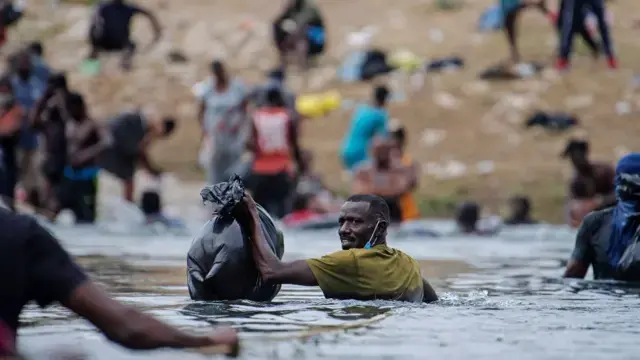Francia Marquez: Colombia's First Black Vice Presidential Candidate
- Janvieve Williams Comrie

- Mar 24, 2022
- 3 min read
By Janvieve Williams Comrie

“I did not get this far to occupy a political position. I am worried that this country won’t change, that peace wont get to the territories, that boys and girls, that children will keep on dying of hunger, that young people will keep on losing their vision, their eyes because they are demanding for their rights for education, for dignity in the streets, that is what I am worried about. That women keep on being silenced, that community leaders keep on being violated and assassinated, that does worry me. This is a national project, a project of transformation.” said Marquez.
With 99.6% of the votes counted on Sunday March 13th of the current year, Francia Marquez obtained 782,000 votes in the consultation to elect a candidate for the presidency of Colombia. In her case, she was second in the coalition of the Historical Pact (Pacto Historico), behind Gustavo Petro, who obtained more than four million votes.
Petro, the Presidential candidate, announced on March 23rd, from Medellin among the responsibilities that Márquez will be as the country's Vice President if they win the next elections to be held on Sunday, May 29th of the current year. Marquez will also play a significant role in carrying out the project of the Ministry of Equality, a key proposal of the Petro campaign.

Francia Marquez has sometimes been represented by the media as someone that does not have her own voice, or that has been opening up a trajectory for herself- two opposing perspectives. What is in fact true is that Francia has been doing this work since she was about 16 years old, when she started going to community meetings because she found out they were going to reroute the Ovejas River in the northern area of the department of Cauca in Colombia, with the Black Communities Process, an organization that brings together over 140 grassroots organizations, community councils and organizations committed to the transformation of the political, social, economic and territorial realities of Black, Afro-descendant, Raizal and Palenquera communities, through the defense and vindication of their individual, collective and ancestral rights. She credits her activism with this organization in the recognition of her Blackness, since Colombia itself does not value Blackness, and if it were up to its education system, she would up to today not acknowledge or recognize her own power as a Black Woman. She attributes her recognition of her Blackness to her activism with this organization because Colombia itself does not value Blackness. If it were up to its education system, she would not acknowledge or recognize her power as a Black Woman today.
What has made Francia a true political power and possibility is that she brings the true perspective from her communities, because she is a community member herself. A single mother born and raised in a mountainous community surrounded by two rivers, in order to protect her family felt the need for her two sons to sadly leave not only the community that saw her grow up, but the country that now sees her run for the Presidency. Francia, who learned the skills of ancestral mining, fishing and agriculture with her grandfather and her uncle in Yolombo, where she proudly voted.
Francia believes that this is the time for all the Colombians that for centuries have been contributing to their communities with their bodies and their blood. As a victim of forced internal displacement, death threats and threats against her safety, Francia understands why many Colombians have felt the need to leave and why Colombians also need an urgent change in politics that prioritizes the needs of people like it has never before. And she not only feels she brings that priority, but she knows it, because she has lived it.
“I am looking to dignify the lives of the communities that have been mostly impacted by policies, communities that have been historically violated, and yes that means communities and territories that are racialized, the most excluded by this society. This is how I got to this historic pact. I come from these communities. It would not make sense for me to be in this historic pact if I cannot transform these communities” said Marquez.
Francia running for office with the #HistoricPact is a call and an opportunity for all Colombians to not only vote, but to take the opportunity to fight for a true Colombia the centers communities that have been invisibilized, and to create all the collective changes towards equity and justice that will make them as a state, but also as a region that will impact the world.
Janvieve Williams Comrie is the founder and current Executive Director of AfroResistance, her previous professional experience include the Office of the High Commissioner of Human Rights Central America Regional Office and the US Human Rights Network in the United States. She resides between The Bronx, New York and Panama City, Panama.


Comments